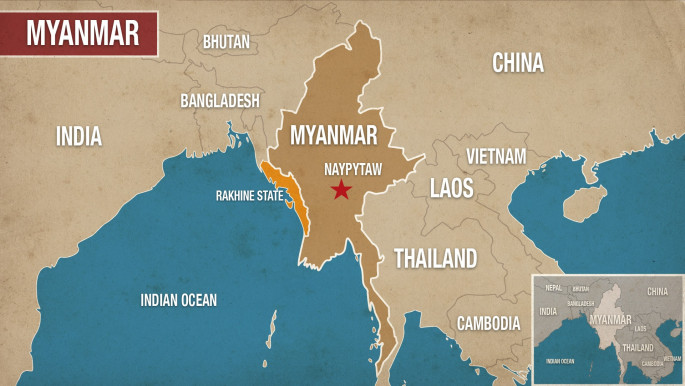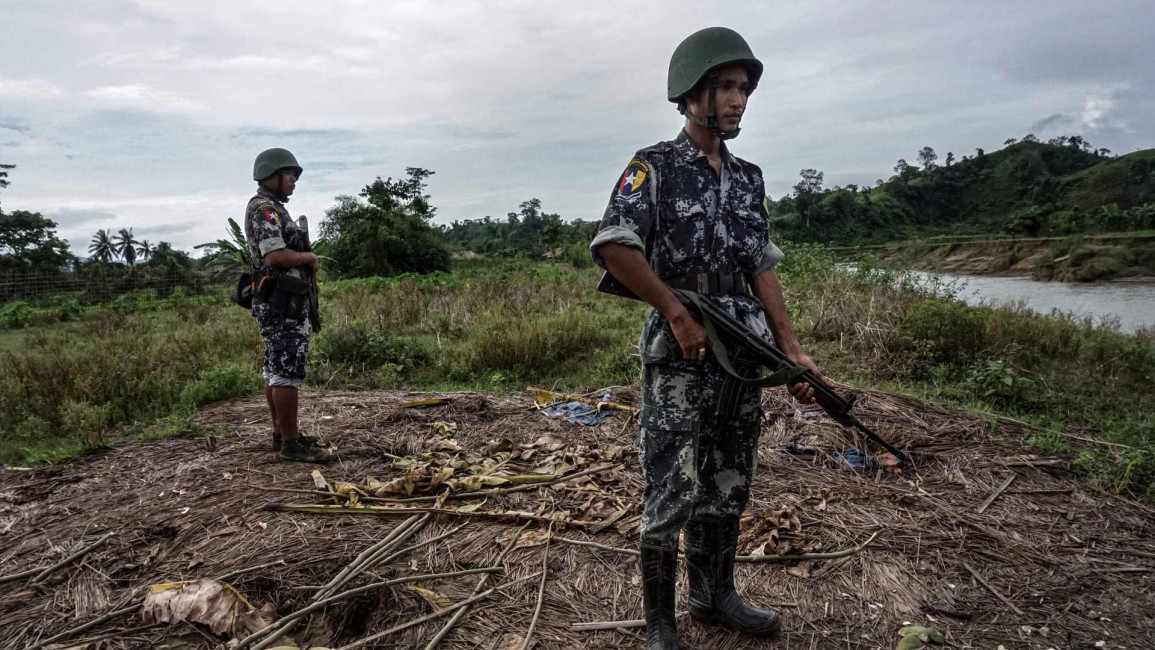Two Myanmar soldiers brought to ICC after confessing to Rohingya atrocities, reports claim
The two men confessed to the executions and burying the victims in mass graves, razing dozens of villages, as well as raping a woman, according to reports in the New York Times (NYT), the Canadian Broadcasting Corporation (CBC) and NGO Fortify Rights.
The news outlets said they had seen a video testimony of the soldiers' confession, filmed by an ethnic Rakhine militia group known as the Arakan Army, which is currently fighting the Myanmar army. Both soldiers said they had deserted from the army, known as the Tatmadaw.
The recordings are the first ever incidents of Tatmadaw members openly confessing to atrocities against Rohingya, however their testimonies corroborate findings of the UN and others that the Myanmar government is committing genocide against the Rohingya.
The two men reportedly fled Myanmar in August and were taken to The Hague, in the Netherlands, where the International Criminal Court (ICC) is investigating atrocities committed by Tatmadaw leaders against the Rohingya.
The men have not been arrested but were placed in ICC custody on Monday.
"This is a monumental moment for Rohingya and the people of Myanmar in their ongoing struggle for justice," Matthew Smith, chief executive officer at Fortify Rights, said.
"These men could be the first perpetrators from Myanmar tried at the ICC, and the first insider witnesses in the custody of the court."
The NYT said it could not independently verify that the two soldiers committed the crimes to which they confessed.
However, details about the 2017 crackdown provided by witnesses, including the location of mass graves and destroyed villages, were in line with those given in the soldiers' testimonies.
'Kill all you see'
One of the soldiers, named as Private Myo Win Tun, said in his testimony that in August 217, his commanding officer's order was: "Shoot all you see and all you hear."
He cooperated, saying he took part in the murder of 30 Rohingya Muslims, dumping them in a mass grave near a mobile phone tower and a military base.
Twitter Post
|
"We indiscriminately shot at everybody," he said in the video. "We shot the Muslim men in the foreheads and kicked the bodies into the hole."
He also confessed to raping a woman.
Private Zaw Naing Tun said around the same time his order from his superior was: "Kill all you see, whether children or adults".
"We wiped out about 20 villages," Private Zaw Naing Tun said, and buried the bodies in a mass grave.
The pair said that their battalions and other security forces killed some 150 civilians killed and razed dozens of villages during that period.
An estimated 6,700 Rohingya, including 730 children, died from violence between late August to late September 2017, according Doctors without Borders.
Around 200 Rohingya villages were completely destroyed between 2017 and 2019, according to UN figures.
The 2017 crackdown sparked one of the most rapid refugee exoduses in history, with 750,000 stateless people fleeing Rakhine state in several weeks, most of them to Bangladesh.
The Myanmar government has refuted the existence of any concerted campaigns against Rohingya Muslims.
It has not been confirmed what will happen to the two men during the ICC investigation.
The outlets suggested that they could either give testimonies during court proceedings and given witness protection, or they could be tried.
Two sources told the NYT the men have been under extensive questioning by court officials over several weeks.
Follow us on Facebook, Twitter and Instagram to stay connected



